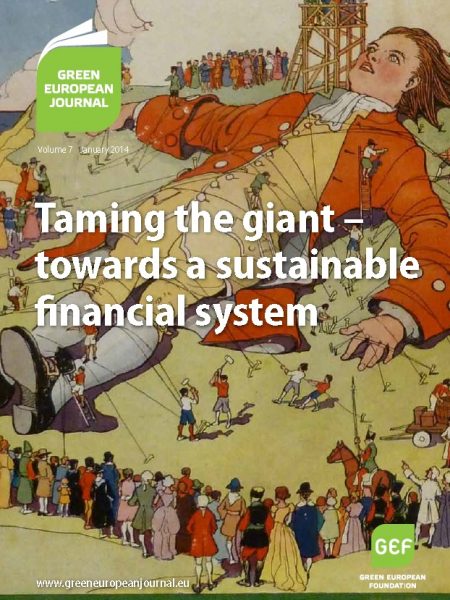In 1726, Jonathan Swift published his famous novel “Gulliver’s travel”. It has been said that the British writer was inspired by the bursting of the South Sea financial bubble in which he had invested much of his money, as had the physicist Isaac Newton who declared “I can calculate the movement of the stars, but not the madness of men”. The arrival of Lemuel Gulliver on the island of Lilliput and his capture by the tiny Lilliputians is probably a metaphor of the sudden and unforeseen change in the fortune of the writer, and the novel is a satire of the dark sides of 18th century English society which were at the base of this early financial crash.
Three hundred years later we are facing the consequences of yet another financial crisis and we cannot be confident that we have succeeded in “taming the giant”, i.e. to protect ourselves from a dramatic repeat of the crisis in which the global economy entered in 2007. As described by Finance Watch, during the last five years we have been following the “status quo lifecycle”, even if some changes have been brought to the legal framework of the financial system. It seems thus that the time has not yet come to appeal for frenzied optimism.
Nevertheless, the main argument of this seventh edition of the Green European Journal is based on a conviction that regulating the financial system is not only an absolute priority; it is also a goal that is politically within reach and in which the Greens can play a key role.
There are numerous reasons to make financial regulation an absolute priority. Firstly, and it cannot be overstated, the rise of populism throughout Europe can be partly explained by the widespread belief that taxpayers are paying for the reckless actions of the financial world and for the unwillingness or inability of politicians to restore fiscal justice and impose effective regulation. The fight against tax havens is a good example of this situation. If some progress has been achieved (with the help of the Greens in the European Parliament) on this level, more is need as the huge amount of money that is hidden in the tax havens not only deprives the states of important resources but is fostering a growing feeling of injustice throughout Europe.
Secondly, the current economic crisis has had disastrous ecological consequences. It encouraged many governments to delay the ecological transformation of our economies and to fall back on the unsustainable use of fossil resources, like shale gas or coal. Further, it shrank the credit possibilities for the greening of our economies. It is true that the Greens have concrete measures to help the green economy and SMEs to overcome this problem. But these measures can only be implemented if we can convince more people that the financial crisis is rooted in the combination of rising inequalities, unsustainable models of consumption and financial deregulations. We have been underestimating the importance of showing the ecological dimension of the crisis and to connecting the financial and the carbon bubbles.
Thirdly a continuation, or even worse a repetition of the systemic crisis, with its catastrophic social consequences, would make the solutions more difficult to implement because the political majorities to pass them would be narrower and the room for cooperation much smaller. Hoping that things get worse, so that more drastic action is taken, is not part of green politics.
The paradox and probably the tragedy of our current situation is that the political legitimacy of all attempts to tame the giant is inversely proportional to their feasibility. Not for problems of principle, but for political reasons. The current majorities dominating European governments and institutions are completely locked in the economic paradigm that has led us to the crisis. They are also much more susceptible to the banking lobbyists.
Therefore it is also absolutely crucial to support alternative lobbies developed by NGO’s like Finance Watch or the Tax Justice Network. It is also urgent that the environmental movement starts to address the financial issue. The Green political foundations are well placed to develop alternative economic models and promoting the debate on provocative proposals like those developed by the jubilee debt campaign or the positive money network.
And, as documented in this edition, it is absolutely crucial to have a strong Green group in the next European parliament.

